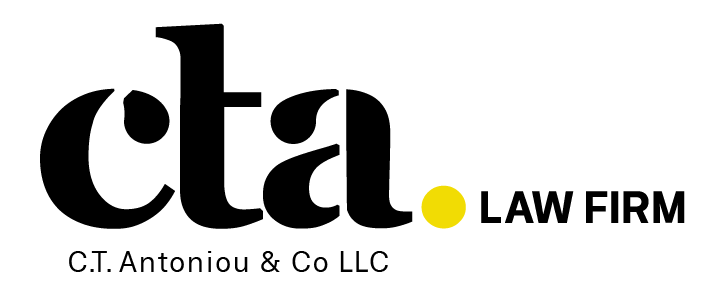
Global Law Experts
Lawyers
Countries Covered
Practice Areas
Discover independent FinTech lawyers on Global Law Experts, a trusted legal directory. Explore award-winning legal expertise today.
















































No results available Reset filters?
posted 1 week ago
posted 3 weeks ago
posted 1 month ago
posted 3 months ago
posted 8 months ago
posted 10 months ago
posted 1 year ago
No results available Reset filters?
FinTech law governs the rapidly evolving intersection of financial services and technological innovation. This practice is essential for navigating the “regulatory perimeter,” determining where software transitions into a regulated financial activity such as banking, payments, or investment advice. Attorneys provide the vital framework for managing Electronic Money Institution (EMI) licensing, ensuring compliance with Open Banking standards (like PSD2), and navigating the high-stakes requirements of Anti-Money Laundering (AML) and Consumer Credit regulations.
Global Law Experts connects you with premier FinTech specialists who possess the technical and regulatory fluency required to scale disruptive products. These lawyers are established experts within their own fields, offering the tactical foresight needed to handle Sandbox applications with financial regulators, structure Smart Contracts for decentralized finance (DeFi), and manage the data privacy implications of AI-driven credit scoring. Whether you are a “Challenger Bank” pursuing a full banking charter or a startup launching a peer-to-peer (P2P) lending platform, they provide the strategic advocacy needed to bypass jurisdictional hurdles and thrive in any legal forum.
Every GLE member is independently vetted by practice area and jurisdiction.
A FinTech lawyer bridges the gap between software and financial regulation. They do not just write code or contracts; they design the legal architecture that allows your product to exist. This involves securing necessary licenses, drafting user terms that limit liability for software glitches, and navigating intellectual property protection for your algorithms. Their primary goal is to ensure your innovative tech does not accidentally violate decades-old banking laws.
Not necessarily. Getting a full banking license is expensive and takes years. A lawyer often suggests faster alternatives like becoming an Electronic Money Institution (EMI) in the UK or obtaining Money Transmitter Licenses (MTLs) in the US. These allow you to handle payments and hold customer funds without the heavy capital requirements of a full bank. This strategy gets you to market quicker while keeping you compliant.
The regulatory environment is aggressive. In 2024 alone, the US SEC brought 33 crypto-related enforcement actions and secured nearly $5 billion in penalties. A lawyer helps you avoid this target by analyzing if your token is a “security” or a “commodity.” They structure your initial offering to comply with securities laws and implement strict Anti-Money Laundering (AML) protocols. This legal shield is vital to keep your founders out of prison.
Open Banking is popular, with over 13 million active users in the UK, but it creates liability chains. The main legal risk is determining who is at fault if customer data is hacked while moving between the bank and your app. A lawyer drafts detailed data-sharing agreements that clearly define liability caps and security standards. This ensures that if a partner’s security fails, your company is not left holding the bill for the data breach.
Yes. You cannot simply ask the public for money online without following strict rules. In the US, a lawyer ensures you comply with the JOBS Act, which limits how much unaccredited investors can contribute. In the UK, they navigate FCA rules that require you to prove the viability of your lending platform. They ensure your marketing materials are clear, balanced, and do not promise unrealistic returns to vulnerable retail investors.
Absolutely. Robo-advisors are held to the same “fiduciary standard” as human advisors. A lawyer ensures your Terms of Service explicitly state the limitations of your algorithm. They draft disclosures that explain how the code makes decisions and what market risks remain. This prevents clients from successfully suing you when the market dips, claiming they thought the algorithm guaranteed a profit.
Fintech data is highly sensitive. A lawyer ensures you comply with strict laws like GDPR in the UK or GLBA in the US. They design your “consent flow” so users know exactly what financial data you are collecting and why. They also manage “vendor risk” by ensuring that any cloud provider you use signs a contract guaranteeing they will protect your user’s financial secrets as strictly as you do.
A regulatory sandbox is a “safe space” where you can test your product with real consumers without facing full regulatory enforcement immediately. It is highly effective; in the UK, 92% of firms that use the FCA sandbox go on to be successfully authorized. A lawyer prepares your application to prove your innovation is genuine and beneficial. This entry ticket allows you to fix compliance bugs in a controlled environment before launching to the mass market.
A FinTech lawyer bridges the gap between software and financial regulation. They do not just write code or contracts; they design the legal architecture that allows your product to exist. This involves securing necessary licenses, drafting user terms that limit liability for software glitches, and navigating intellectual property protection for your algorithms. Their primary goal is to ensure your innovative tech does not accidentally violate decades-old banking laws.
Not necessarily. Getting a full banking license is expensive and takes years. A lawyer often suggests faster alternatives like becoming an Electronic Money Institution (EMI) in the UK or obtaining Money Transmitter Licenses (MTLs) in the US. These allow you to handle payments and hold customer funds without the heavy capital requirements of a full bank. This strategy gets you to market quicker while keeping you compliant.
The regulatory environment is aggressive. In 2024 alone, the US SEC brought 33 crypto-related enforcement actions and secured nearly $5 billion in penalties. A lawyer helps you avoid this target by analyzing if your token is a "security" or a "commodity." They structure your initial offering to comply with securities laws and implement strict Anti-Money Laundering (AML) protocols. This legal shield is vital to keep your founders out of prison.
Open Banking is popular, with over 13 million active users in the UK, but it creates liability chains. The main legal risk is determining who is at fault if customer data is hacked while moving between the bank and your app. A lawyer drafts detailed data-sharing agreements that clearly define liability caps and security standards. This ensures that if a partner's security fails, your company is not left holding the bill for the data breach.
Yes. You cannot simply ask the public for money online without following strict rules. In the US, a lawyer ensures you comply with the JOBS Act, which limits how much unaccredited investors can contribute. In the UK, they navigate FCA rules that require you to prove the viability of your lending platform. They ensure your marketing materials are clear, balanced, and do not promise unrealistic returns to vulnerable retail investors.
Absolutely. Robo-advisors are held to the same "fiduciary standard" as human advisors. A lawyer ensures your Terms of Service explicitly state the limitations of your algorithm. They draft disclosures that explain how the code makes decisions and what market risks remain. This prevents clients from successfully suing you when the market dips, claiming they thought the algorithm guaranteed a profit.
Fintech data is highly sensitive. A lawyer ensures you comply with strict laws like GDPR in the UK or GLBA in the US. They design your "consent flow" so users know exactly what financial data you are collecting and why. They also manage "vendor risk" by ensuring that any cloud provider you use signs a contract guaranteeing they will protect your user's financial secrets as strictly as you do.
A regulatory sandbox is a "safe space" where you can test your product with real consumers without facing full regulatory enforcement immediately. It is highly effective; in the UK, 92% of firms that use the FCA sandbox go on to be successfully authorized. A lawyer prepares your application to prove your innovation is genuine and beneficial. This entry ticket allows you to fix compliance bugs in a controlled environment before launching to the mass market.
Global Law Experts is dedicated to providing exceptional legal services to clients around the world. With a vast network of highly skilled and experienced lawyers, we are committed to delivering innovative and tailored solutions to meet the diverse needs of our clients in various jurisdictions.

Thinking of buying property in Brazil? Start with a full legal safety net.
✔️ Check title and ownership history
✔️ Verify no debts or disputes
✔️ Confirm zoning and permits.
#BrazilProperty #RealEstateInvesting #LegalDueDiligence #ForeignInvestment #PropertyLaw #GlobalRealEstate #InvestmentRisk #BrazilLaw

When your international business faces financial distress, quick action is key! 🔑 Negotiating with creditors, restructuring debt, and understanding insolvency laws can help regain stability. Global Law Experts is here to guide you through your options.
🌍Explore the details on our website.
🔗Link in bio
#GlobalLawExperts #CommercialLaw #BusinessLaw #LegalAdvice #BusinessGrowth #LegalTips #BusinessStrategy #LegalCompliance #Law #LegalKnowledge #LegalAwareness #Law101 #LegalEducation #IntellectualProperty

Thinking of buying property in Brazil? Don’t stop at the contract or key handover. Make sure the title is officially registered before calling it yours.
#BrazilRealEstate #PropertyLaw #GlobalInvestment #ForeignInvestors #LegalTips #DueDiligence #RealEstateRegistration #SecureInvestment

Getting a termination notice right now? Know your rights. Valid reason, fair process, proper notice they matter. Don’t let a bad dismissal walk away without accountability.
#EmploymentLaw #WorkerRights #Termination #LaborLaw #FairDismissal #WorkplaceJustice #LegalAwareness #GlobalWorkforce

Running a business is hard enough — lawsuits shouldn’t make it harder. 🚫 Protect your business with the right legal strategies and expert tools from Global Law Experts. Let’s secure your future together! 💼
🌍Explore the details on our website.
➡️www.globallawexperts.com
#GlobalLawExperts #CommercialLaw #BusinessLaw #LegalAdvice #BusinessGrowth #LegalTips #BusinessStrategy #LegalCompliance #Law #LegalKnowledge #LegalAwareness #Law101 #LegalEducation #IntellectualProperty #Infringed #Ecommerce #LegalBranding
Global Law Experts is dedicated to providing exceptional legal services to clients around the world. With a vast network of highly skilled and experienced lawyers, we are committed to delivering innovative and tailored solutions to meet the diverse needs of our clients in various jurisdictions.

Thinking of buying property in Brazil? Start with a full legal safety net.
✔️ Check title and ownership history
✔️ Verify no debts or disputes
✔️ Confirm zoning and permits.
#BrazilProperty #RealEstateInvesting #LegalDueDiligence #ForeignInvestment #PropertyLaw #GlobalRealEstate #InvestmentRisk #BrazilLaw

When your international business faces financial distress, quick action is key! 🔑 Negotiating with creditors, restructuring debt, and understanding insolvency laws can help regain stability. Global Law Experts is here to guide you through your options.
🌍Explore the details on our website.
🔗Link in bio
#GlobalLawExperts #CommercialLaw #BusinessLaw #LegalAdvice #BusinessGrowth #LegalTips #BusinessStrategy #LegalCompliance #Law #LegalKnowledge #LegalAwareness #Law101 #LegalEducation #IntellectualProperty

Thinking of buying property in Brazil? Don’t stop at the contract or key handover. Make sure the title is officially registered before calling it yours.
#BrazilRealEstate #PropertyLaw #GlobalInvestment #ForeignInvestors #LegalTips #DueDiligence #RealEstateRegistration #SecureInvestment

Getting a termination notice right now? Know your rights. Valid reason, fair process, proper notice they matter. Don’t let a bad dismissal walk away without accountability.
#EmploymentLaw #WorkerRights #Termination #LaborLaw #FairDismissal #WorkplaceJustice #LegalAwareness #GlobalWorkforce

Running a business is hard enough — lawsuits shouldn’t make it harder. 🚫 Protect your business with the right legal strategies and expert tools from Global Law Experts. Let’s secure your future together! 💼
🌍Explore the details on our website.
➡️www.globallawexperts.com
#GlobalLawExperts #CommercialLaw #BusinessLaw #LegalAdvice #BusinessGrowth #LegalTips #BusinessStrategy #LegalCompliance #Law #LegalKnowledge #LegalAwareness #Law101 #LegalEducation #IntellectualProperty #Infringed #Ecommerce #LegalBranding

Send welcome message